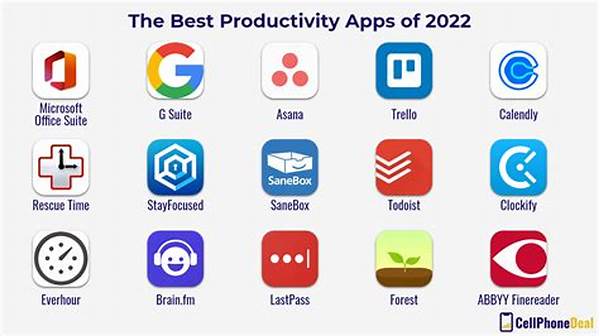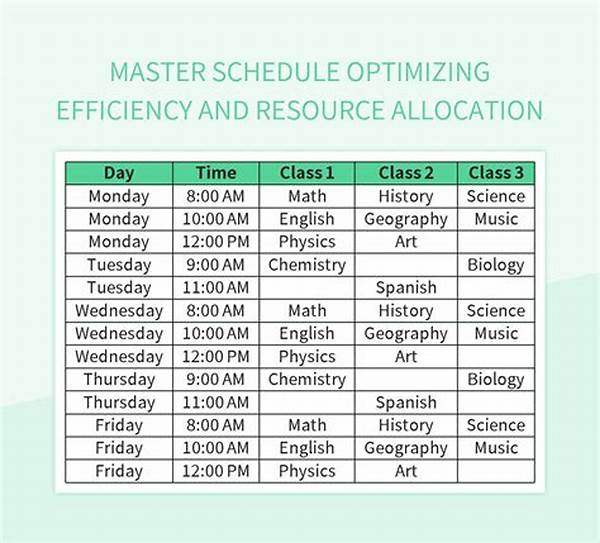Productivity Apps That Are Changing How We Work
In the fast-paced world we inhabit, where time is the most precious commodity, productivity apps are revolutionizing the way we manage our work. The fusion of technology and innovation has created solutions that not only simplify our to-do lists but also enhance our daily work dynamics. Imagine a world where your work processes are streamlined, communication is seamless, and projects are completed efficiently. That’s the reality that productivity apps are crafting for us today. In an era where digital transformation is key, these apps stand out as the unsung heroes, optimizing how tasks are approached and completed. Whether you’re a freelancer managing an overwhelming workload or an executive overseeing a global team, these apps are tailored to adapt to varied needs, highlighting the versatility they bring to the table.
Read More : Best Notion Templates For Time Management In 2025
As the workplace evolves, the reliance on productivity apps isn’t just a trend but rather an essential shift. The convenience of managing projects from the palm of your hand is no longer a luxury but a necessity. Picture walking into a meeting with all relevant data at your fingertips or collaborating with a colleague on the other side of the globe in real-time. These scenarios are not futuristic; they’re happening right now, thanks to productivity apps that are changing how we work. The capability to break down work divides, outweighing any geographical or temporal barriers, is a testament to how these apps are reshaping work dynamics and expectations.
Harnessing the potential of these apps can lead to enhanced productivity, fostering an environment of efficiency and innovation. They are no longer just tools; they have evolved into indispensable partners in the workplace. They offer a unique blend of features ranging from task management, scheduling, and communication, to deeper project integration features. When these aspects come together, they create a synergistic work environment that promotes productivity while reducing stress. It’s clear that productivity apps are not merely adding value to work processes but are actively changing how we perceive work itself.
Transforming Workplace Dynamics with Productivity Apps
The statistics are telling: businesses that integrate productivity apps report a significant increase in efficiency and employee satisfaction. Managers are finding it easier to allocate resources, track progress, and meet deadlines. Employees, on the other hand, appreciate the autonomy and flexibility that these tools offer, allowing for a balanced workflow with less burnout. With their user-friendly interfaces, even those less tech-savvy can quickly adapt, ushering in a new era where productivity apps are at the core of our work routines.
—
Introduction to Productivity Apps That Are Changing How We Work
For many individuals and companies, the transition to digital tools has been monumental. Not only have these tools made remote working a viable option, but they’ve also honed how we approach leadership, teamwork, and project management. Well before the pandemic forced us towards remote environments, early adopters recognized the potential these apps held, setting a standard for what modern work-life would look like. Today, this concept is not only widespread but also an essential part of how we optimize our daily tasks.
As productivity trends evolve, these apps have triggered a paradigm shift, changing our perception of what it means to be efficient. From simple checklist formats to more comprehensive project management suites, they address different aspects of the work process. Consider apps like Trello, Asana, or Slack, for example. Originally viewed as supplementary tools, they have become integral to maintaining seamless operations and driving workplace success. These productivity apps that are changing how we work are not just digital helpers but architects of a new work order.
One of the most attractive aspects of these apps is their ability to adapt. As new market needs arise, these apps swiftly evolve, ensuring they remain relevant and beneficial. This adaptability connects with business dynamics, where flexibility is often synonymous with success. Therefore, investing time and resources into mastering these applications can offer a competitive edge, standing out as a testament to an organization’s commitment to innovation and improvement.
Embracing productivity apps is akin to mastering a new language—a language that speaks in efficiency, innovation, and progress. It’s about creating a culture within organizations that prioritize streamlined processes and effective communication. The possibilities they open are vast, providing opportunities for cooperation that transcend traditional office boundaries. As the digital age continues to unfold, these applications will undeniably continue to influence the landscape of productivity in the workplace.
The Evolution of Productivity Tools
In examining the historical trajectory of these tools, one notes their humble beginnings as simple task lists and their development into comprehensive ecosystems. Their evolution mirrors that of digital technology as a whole—rapid, necessary, and transformative. By integrating features like AI and machine learning, these apps are now able to predict user needs, offering insights and suggestions before a demand is even articulated.
The Importance of Collaboration in a Digital Era
Collaboration is the cornerstone of innovation, and productivity apps are the scaffolding. They have essentially redrawn the collaborative landscape, making geography less of a barrier and real-time interaction the norm. This shift not only defines how teams work together but sets the stage for breakthroughs that can only arise from diverse minds working in concert. Productivity apps are undoubtedly catalysts in this collaborative renaissance, shaping how we think, work, and innovate in unison.
—
Goals of Productivity Apps That Are Changing How We Work
Discussion on Productivity Apps That Are Changing How We Work
The conversation surrounding productivity apps has significantly shifted in recent years. With the workplace increasingly moving towards digital platforms, these apps have emerged as a lifeline for businesses seeking to enhance productivity. They address key challenges such as time management, collaboration, and task delegation, providing a comprehensive solution to common productivity obstacles. While some still debate their necessity, the benefits they offer cannot be overlooked.
Companies keen on staying at the forefront of their industries recognize the importance of integrating these tools into their operations. Not only do they improve efficiency, but they also offer a level of flexibility that traditional methods simply can’t match. It’s akin to having a personal assistant that’s available 24/7, ensuring that deadlines are met and tasks are organized. This shift towards a tech-centric work environment enables businesses to be more agile, responsive, and competitive.
While the transition involves challenges, including training and adaptation, the long-term benefits significantly outweigh the initial investment. Productivity apps that are changing how we work have become more than just an add-on; they’re essential to how modern business is conducted. By embracing these tools, companies position themselves for success in a landscape that values efficiency, innovation, and collaboration.
The Impact on Modern Workflows
Productivity apps aren’t just about task lists and schedules; they’re about redefining workflows altogether. By automating repetitive tasks, employees can focus on what truly matters: creativity, innovation, and strategic thinking. This shift not only leads to better work outcomes but also fosters a positive and stress-free work environment.
Building Future-Ready Workplaces
As we look to the future, it’s clear that productivity apps will continue to play a crucial role. They are the architects of future-ready workplaces, where technology is seamlessly integrated into everyday practices. This evolution is not just reshaping businesses but also redefining employee roles and job satisfaction.
—
Understanding Productivity Apps That Are Changing How We Work
Analyzing how productivity apps influence our daily work routines reveals their power to transform efficiency and create new opportunities for innovation. As digital natives enter the workforce, the need for these apps intensifies, laying the groundwork for continued expansion and sophistication. Staying ahead requires adopting these tools, creating seamless environments where efficiency and creativity thrive. Living in an environment where everything is about speed and effectiveness, these tools give us the edge we need to compete and excel.
The Role of Artificial Intelligence in Productivity
Artificial intelligence is increasingly integrating into productivity apps, moving the needle from reactive to proactive tools. From task prediction to priority settings, these apps harness AI to understand user behavior and recommend necessary actions. This capability is not only a game-changer for time management but also for decision-making, providing unprecedented levels of support and insight.
Tailoring Solutions to Fit Unique Needs
Today’s apps understand that one size doesn’t fit all. Hence, customization is key. Whether you’re an individual managing personal projects or a large organization overseeing complex operations, productivity apps are designed with flexibility in mind. They offer personalized solutions that cater to specific requirements, enhancing user engagement and satisfaction.



